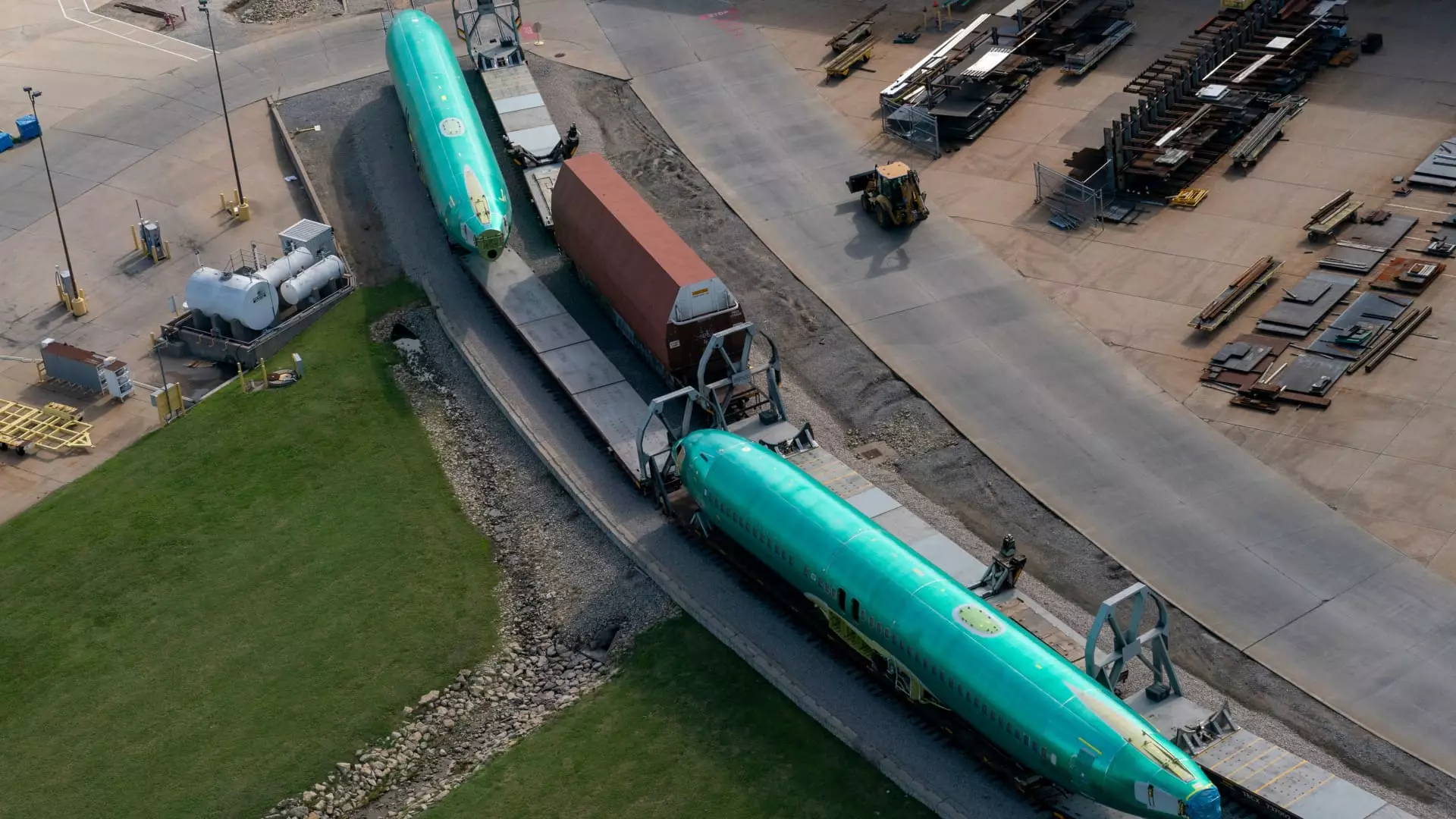The labor landscape in the aerospace industry is currently fraught with tension as Boeing machinists extend their strike for the sixth consecutive week. Prompted by a substantial rejection of a proposed labor contract—where an overwhelming 64% of workers voted against it—this situation has paralyzed production capabilities within one of the sector’s largest companies. The strike primarily impacts Boeing’s facilities located in Seattle, significantly hindering aircraft assembly and delivery schedules.
The ramifications of this prolonged strike extend beyond Boeing itself, impacting crucial suppliers such as Spirit AeroSystems. With Boeing being responsible for a significant portion of Spirit’s revenue, the strikes have introduced a sense of uncertainty that threatens to lead to cascading layoffs and furloughs within the supply chain. Spirit is potentially looking at furloughing additional employees beyond the previously announced temporary leave for 700 workers in Wichita, Kansas. As reported, these furloughs may commence shortly, highlighting the acute stress that the strike imposes on the entire aerospace ecosystem.
Adding to the gravity of the situation, Spirit AeroSystems recently disclosed a staggering third-quarter net loss of $477 million—marking a bleak year-over-year increase in losses. This financial predicament underscores the vulnerability of the aviation supply chain post-Covid-19, as businesses struggled to recover their workforce and operational stability. The costs of idling production not only strain current resources but also jeopardize future contracts and workforce morale.
The hesitance of Boeing suppliers to initiate significant staff reductions can largely be attributed to the long journey towards workforce recovery after the pandemic. Following previous disruptions, many companies had painstakingly rebuilt their teams, making them reluctant to enforce further layoffs amid an unstable environment. The current worker shortages experienced by Airbus share a similar narrative, revealing the sector-wide complexity of making employment decisions in such uncertain times.
Looking Ahead: Negotiations and Future Prospects
Boeing’s newly appointed CEO, Kelly Ortberg, has voiced the urgency in resolving this labor dispute, signifying both an awareness of its critical nature and a commitment to facilitate negotiations with the machinists’ union. In the interim, the striking workers appear equally eager to engage in meaningful discussions, reflecting a mutual recognition of each party’s pressing needs. However, as negotiations loom, the threat of additional furloughs at Spirit and possible extended work stoppages remain dire possibilities, signaling a potential new crisis for an already fragile aerospace industry.
The current labor strikes at Boeing are not merely a localized issue; they resonate throughout the wider aerospace supply chain, particularly impacting suppliers like Spirit AeroSystems. As companies navigate these tumultuous waters, the delicate balance between maintaining workforce stability and ensuring operational viability remains paramount to the recovery and growth of the industry.


Leave a Reply